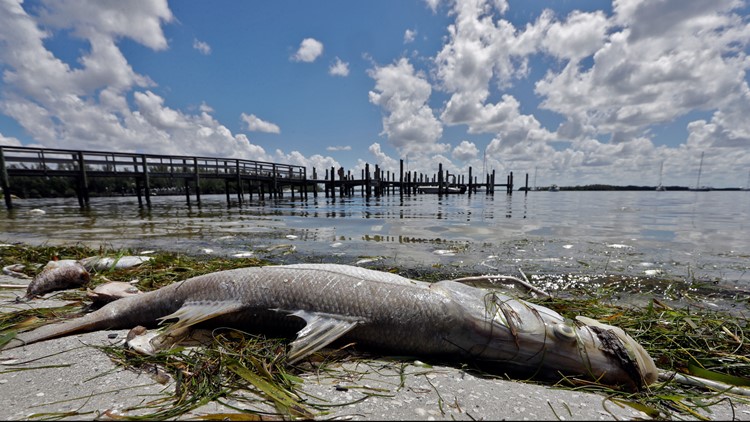ST. PETERSBURG, Fla — It has been months since red tide blooms ravaged the Tampa Bay area. And, while the worst seems to be behind us, the harmful algae bloom still is not letting go of some beaches.
Two weeks ago, reports from the Florida Fish and Wildlife Conservation Commission (FWC) showed zero blooms of the red tide organism, Karenia brevis, in samples collected in Manatee and Sarasota County.
Fast forward seven days and traces of red tide returned to both areas. Pinellas County, which saw more than 3.6 million pounds of dead sea life wash along its shores during July's wave of blooms, is also still dealing with the persistent algae bloom. Very low to medium concentrations were found in two samples in Manatee County. Background to medium concentrations were found in three samples in Sarasota County.
According to FWC's red tide map, the worst of the recent blooms are located offshore and onshore of north Pinellas County beaches, near Clearwater, as well as Anna Maria Island and Bradenton Beach in Manatee County.
You can check out the FWC's latest fishkill reports here.
Red tide is one of the water's deadliest enemies, and it occurs nearly every summer along Florida’s Gulf Coast. Some years, however, it's worse than others.
The blooms can last as little as a few weeks or longer than a year and can even subside and then reoccur, according to FWC.



